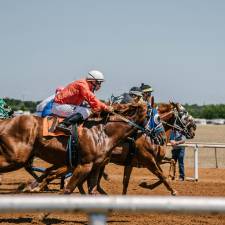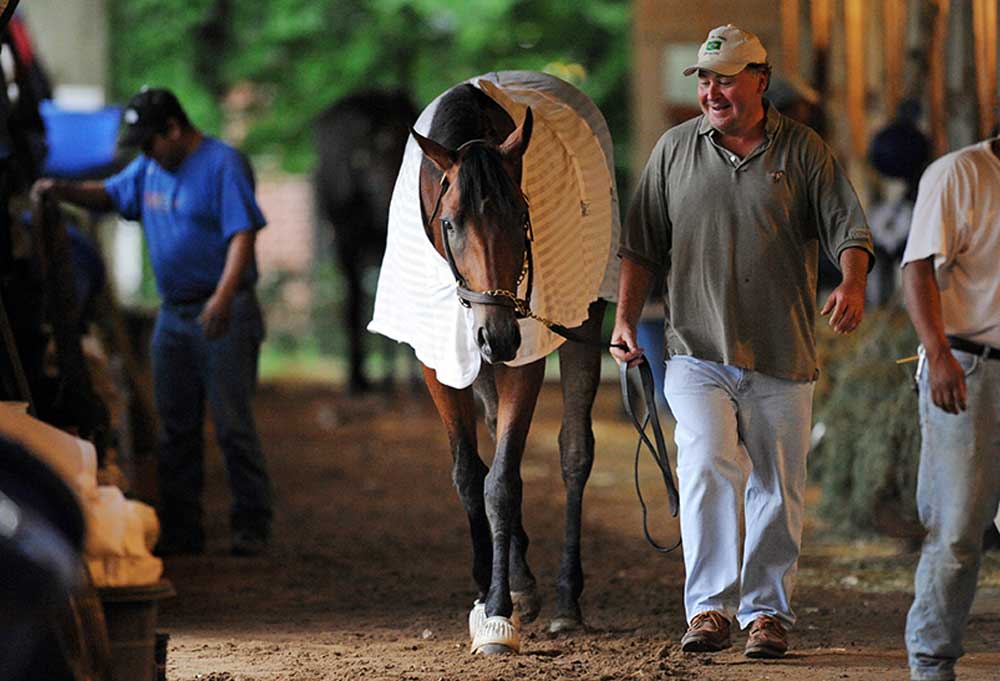
UPDATE: EIE originally published this article in March of 2020. Rick Dutrow is back training and one of his horses, White Abarrio, cruised to a 6 1/4 length victory in the $1 million dollar Grade 1 Whitney Stakes, beating odds-on Cody's Wish who finished 3rd.
by Wallace Matthews
Back in the mid-90s, a thoroughbred owner called Rick Dutrow asking a favor: Did he know anyone at the New York Yankees who might be able to arrange a special visit to the Stadium for his handicapped daughter, who was a huge Yankee fan?
Dutrow didn’t, but he knew Don Zimmer slightly, who at the time was manager Joe Torre’s bench coach, and he knew how to use a telephone. He called the Yankee Stadium switchboard, asked to be connected to the home clubhouse, and somehow found himself speaking to a man inside the Yankees closely-guarded inner sanctum.
“Could you ask Don Zimmer to call Rick Dutrow? He knows my dad, Dickie Dutrow, from horse-racing,’’ he told the man, who was likely a Yankees clubhouse attendant. Ten minutes later, Don Zimmer called back.
“I was hoping and praying he would remember my dad,’’ Dutrow said. “And like the freak he was about horse racing, he remembered like it was yesterday.’’
That phone call started an association that led Dutrow to train horses for Torre, including the filly Sis City, who developed into a pretty good Saturday afternoon horse, ran fourth in the Kentucky Oaks and wound up being sold for $2 million, returning Torre, a one-quarter partner, a cool half-million on his initial investment in a $50,000 claimer.
It also resulted in Torre, who managed the Yankees to four world championships and is in the Baseball Hall of Fame, writing a letter to the New York State Gaming Commission in November 2015 asking it to reconsider the unprecedented 10-year license revocation handed down by the Commission four years earlier.
“My name is Joe Torre. I write in support of Trainer Rick Dutrow. I love horse racing and Rick trained some of my horses. My experience with him was positive. I understand that there is an effort underway to have the Gaming Commission review the penalty imposed on Rick in 2011. I support this effort in the hopes that this focused reconsideration by the Commission will return Rick to his life's work. ‘’
In recent days, Torre’s support -- along with that of trainer Dale Romans, owner Michael Dubb and vet Dr. Larry Bramlage, to name just a few – has been bolstered by the addition of noted civil rights attorney Norman Siegel and the prestigious Manhattan law firm of Paul, Weiss to the cause.
Their mission is to get Dutrow’s sentence reduced to time served and his license to train reinstated, and their reason is simple: When it comes to training thoroughbreds, many owners have expressed that no one does it better, or safer, than Rick Dutrow.
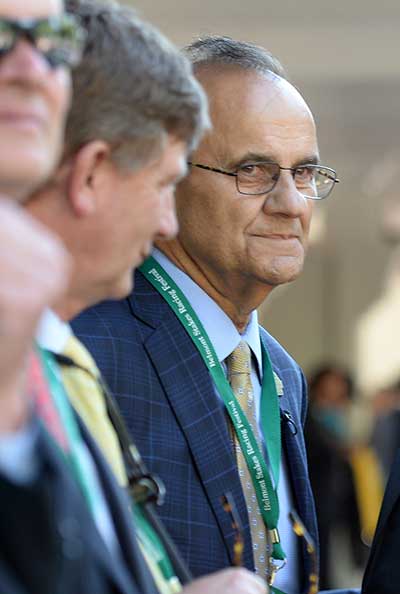
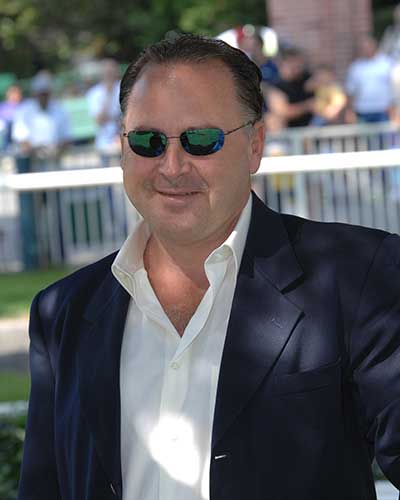
And with the Queens District Attorney’s office recently having re-opened its investigation in the New York Daily News article Horse trainer Rick Dutrow’s last ride heads into homestretch as he fights to overturn 10-year suspension linked to syringes in his barn into the case, including new allegations of incriminating evidence having been planted in his barn, it is worthwhile to hear what not only Dutrow’s friends and associates, but even some of his rivals, have to say about him.
“Rick Dutrow is one of the best horsemen who ever lived,’’ said Dubb, for whom Dutrow trained Sr. Henry, a pretty fair allowance horse. “Racing actually needs Dutrow more than he needs racing. He sees things other guys don’t see in terms of fitness and conformation.’’
“He’s so good it’s hard for people to realize how good he is. They think he must be drugging,’’ said Romans, a rival trainer who started a petition to get Dutrow’s license reinstated. “He never puts financial reward before the welfare of the horse and there’s a lot of pressure in this game to do that. It’s just a shame what happened to him.’’
“He is by far the most conscientious, horse centric trainer I have ever hired,’’ said owner Lansdon B. Robbins, for whom Dutrow trained the stakes winner Offlee Wild. “He always put the horse first and was way ahead in diagnosing issues before big problems arose.”
“No one treated his horses better than Rick,’’ said Patti Cerda, the former manager of the identification department for NYRA. “You could eat off the floors of his barn.’’
And in his testimonial letter to the Gaming Commission, Dr. Bramlage wrote of Dutrow: ‘’To have trained as many horses at a high level for as long as he trained them and not have a single fatal injury on your record is a phenomenal testament to the care he gave his horses. [His] horses were sent to us early in the course of their diseases, before permanent damage had ensued. He and his staff recognized problems early and did not delay in getting them addressed. This is the primary reason he had so much success and so few injuries, in my opinion.’’
Although his brash and at times abrasive personality has rubbed some in racing the wrong way, all seem to be in agreement regarding Dutrow’s treatment of his horses. And that was a lesson Dutrow learned from his father, a leading trainer on the Maryland circuit.
“My dad always took very good care of the horses,’’ he said. “The stalls were always bedded clean and deep for the horses, they always had the best kind of hay that was available. I feel that goes a very, very long way with the horses. The way I look at it is, that is there home there inside that stall and the way that you treat them inside there is very important.’’ To Dutrow, a pleasant atmosphere in the barn translated to a positive outcome on the racetrack.
“It’s kinda like having a dog in your house. You set up so many different things for your dog to be comfortable there and to be happy there,’’ he said. “It’s the same thing for a horse. Can you imagine when a horse goes from a place where it’s not taken as good care of to my place? That’s where a horse is going to wake up and say, hey man, this is a better spot here. So right away his mind is going to be better. And if the horse is happy, they’re more focused, they like getting out of bed to do their work, they like the person that walks them, the person that feeds them. It makes sense that a happy horse is going to be a better horse.’’
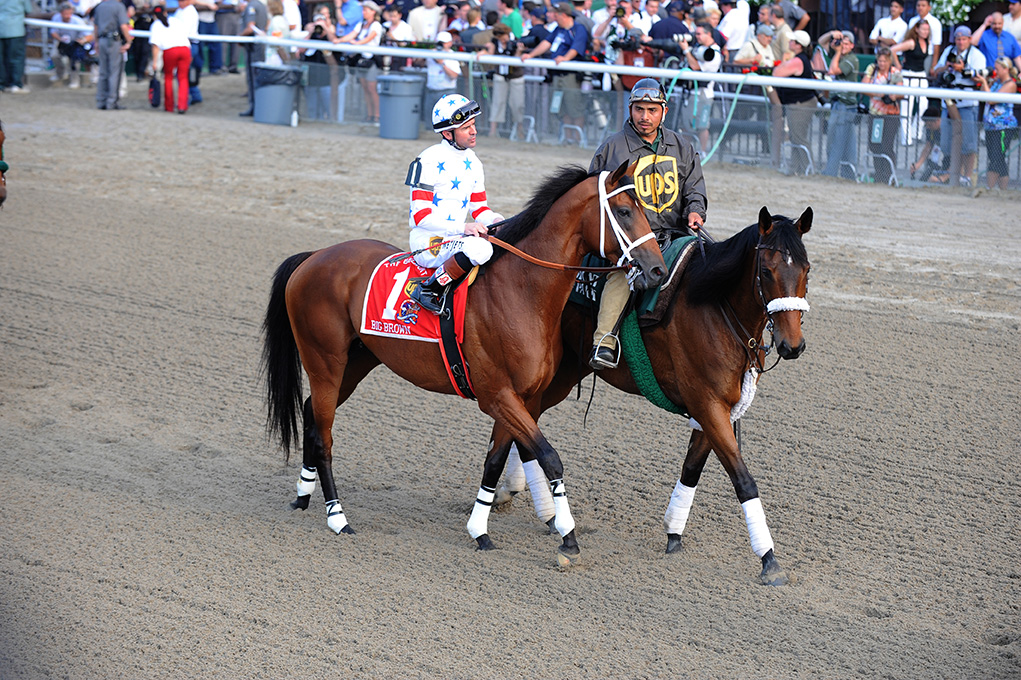
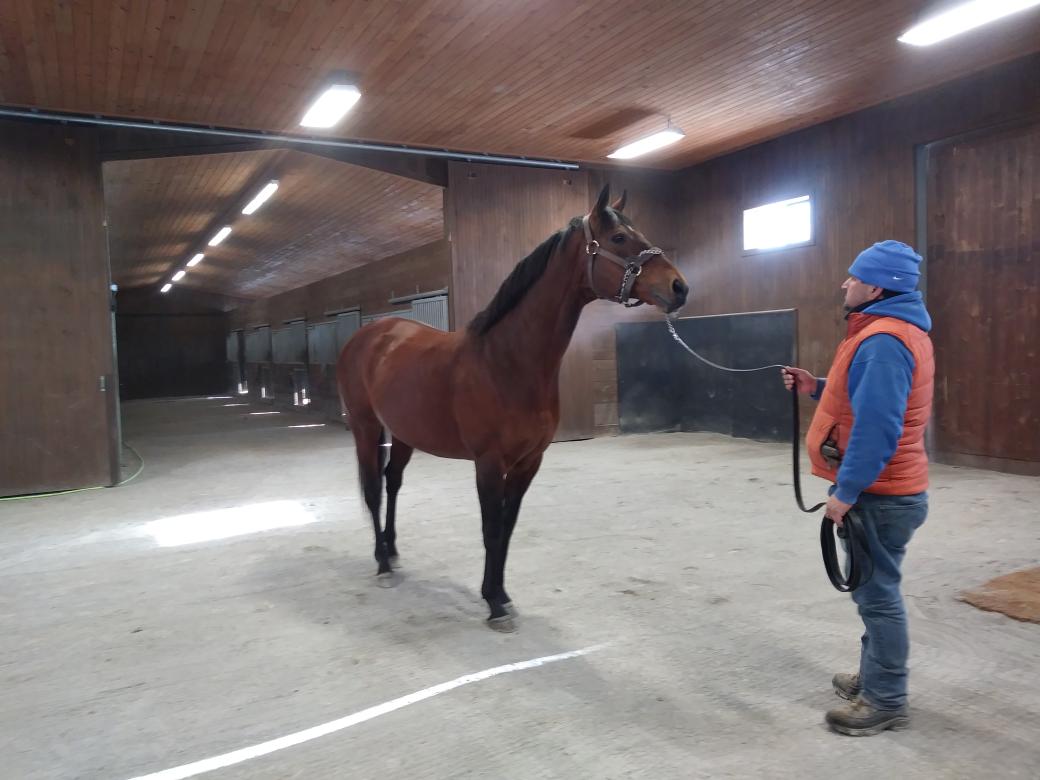
To Dutrow, the mental well-being of the animal is every bit as important as the physical well-being. And after saddling more than 7,000 horses and over 1,800 winners, including Kentucky Derby and Preakness winner Big Brown and Breeder’s Cup Classic winner Saint Liam, his theory seems to have more than a little merit.
“I never knew him to send a horse out that was unsound or unfit to run,’’ Romans said. “Just look at the record.’’
The Gaming Commission database lists just four equine deaths on Dutrow’s record in New York, and only one on the racetrack. That compares favorably with some of the top trainers currently competing on the New York circuit. In addition, although he has had numerous minor-to-moderate violations ranging from paperwork errors to overages of legal therapeutic drugs, Dutrow has never been found to have administered an illegal performance-enhancing substance to any of his horses.
And yet, in 2011 the New York State Racing and Wagering Board socked Dutrow with not only the 10-year revocation -- which does not run out until 2023, at which point he must re-apply for reinstatement, hardly a slam-dunk – but also a $50,000 fine. Penalties of that severity have rarely, if ever, been handed out in New York.
“There is no doubt that this was an eye-opener of a penalty imposed on Mr. Dutrow,’’ admitted a high-ranking New York racing official, who spoke on the condition of anonymity. And in fact, it does seem as if more than Dutrow’s ability and conduct with his horses factored into the severity of his sentence. According to the order handed down by the RWB on Oct. 12, 2011, “Richard E. Dutrow, Jr, is a person whose conduct at race tracks in New York State and elsewhere has been improper, obnoxious, unbecoming, and detrimental to the best interests of racing.’’
“How does obnoxious behavior have anything to do with how a man goes about his business?,’’ Romans asked. “I’ve tried to help him out every step of the way because I just think, you know, if that’s the case, then who can be next?’’
For all his hard-boiled braggadocio – “When I’m going good, I can be a little brash,’’ Dutrow admitted – he has an abashed soft spot for his horses.
.JPG)
Asked if he loved his horses, Dutrow said, “Well, isn’t that the gist of the whole game? How you going to go out there and train them if you don’t fricking love em? Yes, I love ‘em.’’ Among his favorites, of course, are the obvious ones, like Big Brown – “Absolutely the coolest horse I ever knew’’ – and some less obvious, like This One’s For Phil, a gelding who won the Gr. 2 Swale Stakes in 2009.
“We were just like brothers,’’ Dutrow said.
Then there were the more difficult ones, like Saint Liam and Kip Deville, of whom Dutrow said, “They weren’t looking for the friendship. They were just looking to be racehorses. You couldn’t go up and pet them and do all the lovey-dovey shit. They just wanted to run.’’
Identifying the different personalities of 100 racehorses and training them accordingly was among Dutrow’s favorite parts of his job.
“If you can reach 90 of them, I think that’s a hell of an accomplishment,’’ he said. “But at the same time, as a horseman it bothers you that you can’t get to those other 10. If there’s one horse in your barn and he’s not happy or not doing what he’s supposed to, it has to bother you.’’
Then there was a horse called Silver Kipper, who Dutrow recommended Zimmer bet on the day he called to ask a favor for his friend. Zimmer took Dutrow’s advice and Silver Kipper won at Saratoga, paying $12.60. Two weeks later, Dutrow ran him back and called Zimmer again. This time silver Kipper paid “only” $11.80.
“After that I had Zim hooked for life,’’ Dutrow said. “He called me every day after that, even when he was sick and dying in the hospital. Boy, we had a ball.’’
“The bottom line is, it’s fun to train horses,’’ Dutrow said.
With the help of his former owners, some fellow trainers and one Hall of Fame baseball manager, Rick Dutrow might get to have that fun again.
EDITOR’S NOTE: Additional owners have come forward to support Rick Dutrow.
The following statement is from Samantha Siegel who owned stakes winning mare By The Light and Grade 1 winner Boys At Tosconova, now a sire.
Rick loves his horses. He loved to go back to the barn after dinner and feed his horses peppermints. One night after dinner I was invited. He goes into the office to retrieve this little pail of mints. He gets really serious and tells me, "Sam, I'm the mint Nazi. They get one on the way up and one on the way back" We both break into laughter and I grab mints to feed my kids. All the horses heads come out as they hear him and the mint wrappers. He looked at every horse as he gave them a mint. One on the way up the shedrow, and one on the way back.
Lansdon B. Robbins who owned horses including Grade 1 stakes winners Offlee Wild and First Samurai stated,
“I bought my first race horse in 1995 and have literally owned hundreds since that time. I’ve employed dozens of trainers through the years and was introduced to Rick Dutrow in 2002 by Bobby Frankel who then trained horses for me. Bobby trained an Argentine horse by the name of Lethal Weapon for me that Bobby could not figure out.
When Frankel moved his tack from NY to California that winter, I told him I did not want to ship Lethal Weapon to California as I wasn’t sure of his quality. Rick took over and did a great job.
After that experience, I sent multiple horses to Rick. He is by far the most conscientious, horse centric trainer I have ever hired. He ALWAYS put the horse FIRST and was way ahead in diagnosing issues before big problems arose.”
About the Author

Wallace Matthews has been an award-winning New York City-based sports writer, columnist, blogger, television commentator, sports-talk radio host and podcaster since 1983. He is one of the few local sportswriters to have written for all four of New York’s major daily papers: Newsday, the New York Post, the New York Times and the New York Daily News.
Matthews began his career as a boxing writer at Newsday in 1983 and was promoted to general sports columnist in 1991. He became the lead sports columnist at the New York Post in 1994 and moved on to host a drive-time sports talk show, “Wally and the Keeg,’’ on 1050 ESPN radio from 2002-2005. He returned to Newsday as its lead sports columnist in 2005, and joined ESPN.com as its Yankees beat writer from 2010-2017. He covered the Mets and Yankees for the New York Times in 2017 and 2018, and became the lead sports columnist for the New York Daily News in October 2018. Most recently, he wrote a column for Yahoo Sports. His work has also appeared in the Washington Post, Sport Magazine, Sports Illustrated, Forbes com, The Athletic com and Complex com.
On the broadcast side, Matthews was a co-host of “The Last Word’’ and “Fox on Sports Sunday’’ and served as a boxing color commentator for NBC-TV on the 1988 Seoul Olympics and 1992 Barcelona Olympics. He has done television commentary for HBO, Showtime, ESPN, CBS-TV, the YES Network, SNY, SportsChannel New York and Versus. He was the president of the Boxing Writers Association of America from 1989-1993 and is a two-time APSE Award winner for sports journalism. He is also an adjunct professor of journalism at Stony Brook University.
Find more interesting articles in our section on Horse Racing.









